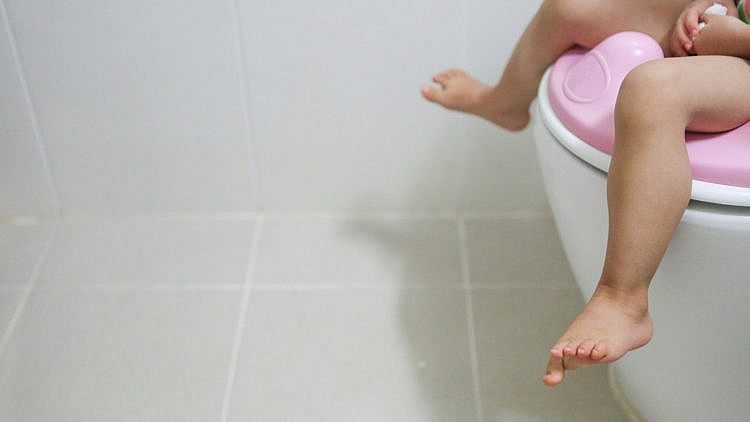
I was dizzy with questions until the family doctor assured me that my two-year-old daughter was going to be just fine.
“Unique.” It’s not the word you want to hear as a doctor examines your two-year-old daughter’s vagina. Especially when you have no context. Especially when you hadn’t noticed anything “unique” about it yourself. But that was the word used by the on-call physician as he stumbled over my daughter’s symptoms. Eventually, he spit out a more descriptive term, labial adhesion.
My daughter had repeatedly expressed that her “gyna hurt” over the course of the day. My first instinct was a bladder infection, a hypothesis backed by a Google search. But we had been to the beach that week, too—maybe she had some irritation from the sand? Labial adhesion definitely hadn’t come up in my search. In fact, in 33 years of having my very own vulva, it wasn’t even something I had heard of.
The doctor pulled apart the outer lips of my two-year-old’s vagina, and revealed a full fusion of her labia. My heart sank. “Isn’t that where the opening to her cervix is supposed to be?” He nodded. “But it’s not there,” I said. “There isn’t a hole where her cervix is supposed to be.”
Having been born in the midst of the pandemic, most of my daughter’s doctor appointments were virtual. Was it possible her fusion was missed? And if it had been, was her anatomy fully developed? Did she have a uterus? Would she be able to have children one day? Could she be intimate as an adult? My mind spiraled through every possible “what if.” Augmenting those concerns was a hand-drawn diagram of a vulva and an urgent pelvic ultrasound requisition provided by the on-call doctor.
I hardly slept that night. I hardly slept the days afterward. It wasn’t until I met with our family doctor and spoke to Dr. Joana Dos Santos, staff medical urologist at the Hospital for Sick Children in Toronto—both of whom alleviated my worst fears—that I could finally feel some sense of relief.
Here’s what I learned.
What is labial adhesion?
A fused labia, or labial adhesion, happens when the inner folds of the labia in the vulva (the part covering the urethra and vagina openings) stick together instead of remaining separate.
What causes the labia to fuse together?
Labial adhesion is not, in fact, a birth defect. “Although the cause is not completely known, the inner labia is thought to get fused due to the lack of estrogen in prepubertal girls,” says Dos Santos. Experts also believe that frequent irritation or inflammation, caused by things like diaper rash, poor hygiene or strongly perfumed soaps, may cause the labia to end up stuck together.
How common is labial adhesion and at what age does it occur?
Dos Santos called the condition “common,” noting that labial fusion is reported in up to five percent of girls before they reach puberty. The peak incidence of labial adhesion is between three and 23 months.
Should you be worried if your child is diagnosed with fused labia?
Here’s the good news and what I wish I had known: the condition is relatively harmless. “Most cases are asymptomatic, accidentally found by caregivers or by a healthcare provider during a routine exam,” says Dos Santos. However, if the labial fusion is extensive, it may block the urinary stream and cause urinary tract infections, or in rare cases, difficulty urinating.
What are the treatments for labial adhesion?
For most children with the condition, the adhesions are small and will separate on their own, something that often happens during puberty when estrogen surges occur. In the presence of symptoms, doctors can treat the adhesion with a topical steroid cream which separates the labia. However, in more severe cases like recurrent or complete fusions, surgery may be necessary.
After an exam by our family doctor, we know for sure that our daughter has complete fusion. And while she may, in a very rare case, require surgery, it’s been recommended we wait to see if her labia will separate over time.
If your baby or child is experiencing gynecological issues or symptoms, it’s best to visit your doctor. But in the meantime, you can rest assured knowing that adhesions don’t cause any long-term issues and, more often than not, resolve on their own.

